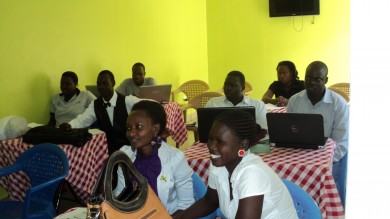The SNV-CEP project is at it’s fourth phase where the Local Capacity Builders (LCBs) are now being tasked to design topic guides to aid their research as they bring their Policy Advocacy and Lobbying reports to life.

The first stage involved disbursing an easy to fill out questionnaire that helped Interface establish profiles of the lead capacity builders that would spear head the Community Empowerment programme. Most of the questions centred around capacity size, modes of communication among the LCBs, that is, text messaging platforms, websites, talk shows, to questions regarding ease of access to district plans.
Phase II incorporated a workshop that introduced the five lead LCBs from the areas of North, North West and South West to the concept of Policy, Advocacy and Lobbying as a toolkit to better realise implementation of best Water Sanitation and Hygiene (WASH) and feeding practices in schools. The workshop span five days where hands-on frameworks were taught to the LCBs with interactive sessions between breaks.
Phase III is where the LCBs had to implement the lessons learned during the workshop to design PALS reports that highlighted key issues they intended to focus on in both areas of school WASH and school feeding. The Interface team went on support trips to follow the progress of the LCBs as they built up their arguments to diagnose a particular issue and propose one set implementation over the other.

Topic Guides Workshop with SORUDA
Phase IV, which is now being implemented is the design of topic guides to help the LCBs in their research on the causes of the issues they stated in their PALS documents and whether their implementation suggestions will be sustainable. At the end, the data collected will be analyses and used to further improve the completion of the draft PALS reports whilst lobbying for policies that are acceptable and practical to the specific communities.
The end goal however is that the lead LCBs should by the end of the project in June 2014 have involved and lead other LCBs within their regions to influence change through involving them in the decision making processes, and field work experiences at each phase.



One Response to DESIGNING TOPIC GUIDES